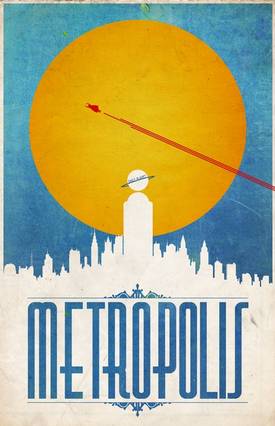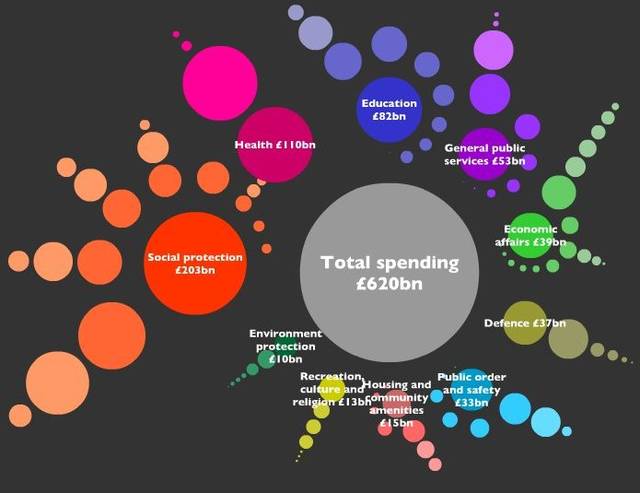Genrocks's "Filmography 2010" remixes 270 of this year's big budget movies into "one giant ass video" -- six minutes of thematically linked, brilliantly edited loveliness.
Filmography 2010
(via Kottke)
![]()
Genrocks's "Filmography 2010" remixes 270 of this year's big budget movies into "one giant ass video" -- six minutes of thematically linked, brilliantly edited loveliness.
Filmography 2010
(via Kottke)
![]()
 Justin Van Genderen's vintage style travel posters for the storied cities of comicbookland are on sale for $18.03 each.
Justin Van Genderen's vintage style travel posters for the storied cities of comicbookland are on sale for $18.03 each.
Gallery: ComicTravelLocations (5 images) (via Super Punch)
In the Grip of the New MonopolistsWe wouldn't fret over monopoly so much if it came with a term limit. If Facebook's rule over social networking were somehow restricted to, say, 10 years--or better, ended the moment the firm lost its technical superiority--the very idea of monopoly might seem almost wholesome. The problem is that dominant firms are like congressional incumbents and African dictators: They rarely give up even when they are clearly past their prime. Facing decline, they do everything possible to stay in power. And that's when the rest of us suffer.
AT&T's near-absolute dominion over the telephone lasted from about 1914 until the 1984 breakup, all the while delaying the advent of lower prices and innovative technologies that new entrants would eventually bring. The Hollywood studios took effective control of American film in the 1930s, and even now, weakened versions of them remain in charge. Information monopolies can have very long half-lives.
Declining information monopolists often find a lifeline of last resort in the form of Uncle Sam. The government has conferred its blessing on monopolies in information industries with unusual frequency. Sometimes this protection has yielded reciprocal benefits, with the owner of an information network offering the state something valuable in return, like warrantless wiretaps.
Crutchfield Dermatology, in the Minneapolis area, requires its patients to give them the copyright for everything they write on the Internet, in exchange for service. The provision is in an agreement called: "No Show and Cancellation Policy, Patient Satisfaction Agreement, Privacy Protection and Assignment of Copyright Policy." Basically, the company doesn't want its patients saying bad things about it on the Internet. So it demands:Crutchfield Dermatology"In consideration for your medical care and the additional patient protection, described above, by signing this document you or your legal ward agree to refrain from direct or indirect publication or airing of commentary about Crutchfield Dermatology and Dr. Crutchfield's practice, expertise or treatment except in the manner provided in the preceeding Patient Satisfaction Agreement Procedures. You recognize that Crutchfield Dermatology has made significant investments to develop Crutchfield Dermatology's practice and reputation for outstanding care, and that published comments on the internet or through mass correspondence may severely damage Crutchfield Dermatology's practice. By this agreement, you grant all copyright ownership in any and all published statements, comments, blog postings, and any other communication made by you outside of the Patient Satisfaction Agreement Procedures. You further agree that Cruthfield Dermatology is entitled to equitable relief to prevent the initiation or continuation of publishing or airing of such commentary regarding Crutchfield Dermatology's practice, expertise, or treatment."
Giving them copyright over things I write about them is bad enough; giving them copyright over everything I write turns me into an indentured servant. And, of course:
"Crutchfield Dermatology reserves the right to modify any policies without notice."
Broadcast Yourself (via /.)For years, Viacom continuously and secretly uploaded its content to YouTube, even while publicly complaining about its presence there. It hired no fewer than 18 different marketing agencies to upload its content to the site. It deliberately "roughed up" the videos to make them look stolen or leaked. It opened YouTube accounts using phony email addresses. It even sent employees to Kinko's to upload clips from computers that couldn't be traced to Viacom. And in an effort to promote its own shows, as a matter of company policy Viacom routinely left up clips from shows that had been uploaded to YouTube by ordinary users. Executives as high up as the president of Comedy Central and the head of MTV Networks felt "very strongly" that clips from shows like The Daily Show and The Colbert Report should remain on YouTube.
Viacom's efforts to disguise its promotional use of YouTube worked so well that even its own employees could not keep track of everything it was posting or leaving up on the site. As a result, on countless occasions Viacom demanded the removal of clips that it had uploaded to YouTube, only to return later to sheepishly ask for their reinstatement. In fact, some of the very clips that Viacom is suing us over were actually uploaded by Viacom itself.
Given Viacom's own actions, there is no way YouTube could ever have known which Viacom content was and was not authorized to be on the site. But Viacom thinks YouTube should somehow have figured it out. The legal rule that Viacom seeks would require YouTube -- and every Web platform -- to investigate and police all content users upload, and would subject those web sites to crushing liability if they get it wrong.
(Image: Kara Swisher and Philippe Dauman, a Creative Commons Attribution photo from Joi's photostream)
 Jayel sez, "Flickr staff Cris Stoddard has commented on the Indicommons blog that the Flickr Commons will double the number of participating institutions this year from 31 to 60 GLAMs (art galleries, libraries, archives, and museums) this year alone.
I believe that the Commons is Flickr's singularly most important cultural contribution to the world. And it doubling in size means more of the world's photographic heritage and history will be shared with its citizens."
Jayel sez, "Flickr staff Cris Stoddard has commented on the Indicommons blog that the Flickr Commons will double the number of participating institutions this year from 31 to 60 GLAMs (art galleries, libraries, archives, and museums) this year alone.
I believe that the Commons is Flickr's singularly most important cultural contribution to the world. And it doubling in size means more of the world's photographic heritage and history will be shared with its citizens."
The Commons: Vital, virile, virtual and viral
Remember folks, thanks to 11 copyright term extensions in the past 40-some years, more than 98% of all works in copyright are "orphaned" -- still in copyright, but no one knows to whom they belong.
Fahrenheit 451... Book burning as done by lawyers (Thanks, Jamie!)But the legal changes introduced in the years after Fahrenheit 451 did more than just extend terms. Congress eliminated the benign practice of the renewal requirement (which had guaranteed that 85% of works and 93% of books entered the public domain after 28 years because the authors and publishers simply didn't want or need a second copyright term.) And copyright, which had been an opt-in system (you had to comply with some very minor formalities to get a copyright) became an opt out system (you got a copyright automatically when you "fixed" the work in material form, whether you wanted it or not.) Suddenly the entire world of informal and non commercial culture -- from home movies that provide a wonderful lens into the private life of an era, to essays, posters, locally produced teaching materials -- was swept into copyright. And kept there for the life of the author plus 70 years. The effects were culturally catastrophic. Copyright went from covering very little culture, and only covering it for a 28 year period during which it was commercially available, to covering all of culture, regardless of whether it was available -- often for over a century. Unlike Fahrenheit 451, the vast majority of the culture swept into this 20th century black hole was not commercially available and, in most cases, the authors are unknown. The works are locked up -- with no benefit to anyone -- and no one has the key that would unlock them. We have cut ourselves off from our own culture, left it to molder -- and in the case of nitrate film, literally disintegrate -- with no benefit to anyone. The works may not be physically destroyed -- although many of them are; disappearing, disintegrating, or simply getting lost in the vastly long period of copyright to which we have relegated them. But for the vast majority of works and the vast majority of citizens who do not have access to one of our great libraries, they are gone as thoroughly as if we had piled up the culture of the 20th century and simply set fire to it; and all this right at the moment when we could have used the Internet vastly to expand the scope of cultural access.
(Image: Burned Book a Creative Commons Attribution ShareAlike image from Paraflyer's photostream) (Thanks, Jamie!)
Two Gentlemen of Lebowski, by Adam Bertocci (thanks, chris arkenberg, PLEASE PLEASE let this end up as a live stage performance for yea, verily I should like to see it)WOO: Rise, and speak wisely, man--but hark; I see thy rug, as woven i'the Orient, A treasure from abroad. I like it not. I'll stain it thus; ever thus to deadbeats.
[He stains the rug]
THE KNAVE: Sir, prithee nay!
BLANCHE: Now thou seest what happens, Lebowski, when the agreements of honourable business stand compromised. If thou wouldst treat money as water, flowing as the gentle rain from heaven, why, then thou knowest water begets water; it will be a watery grave your rug, drowned in the weeping brook. Pray remember, Lebowski.
THE KNAVE: Thou err'st; no man calls me Lebowski. Yet thou art man; neither spirit damned nor wandering shadow, thou art solid flesh, man of woman born. Hear rightly, man!--for thou hast got the wrong man. I am the Knave, man; Knave in nature as in name.
BLANCHE: Thy name is Lebowski.
If you've already made your Christmas gifts to EFF and Creative Commons and have a couple of bucks left over? How about buying a gift for the public domain!!
Public.Resource.Org just ordered another 41 titles and spent $560 on some really great FedFlix from the vaults of the National Archive, there is still plenty of great material out there, so we put together an Amazon Wish List. If you see anything you'd like to buy the public domain we'll take your DVD and upload the video to YouTube, the Internet Archive, and to our own rsync/ftp public domain stock footage library.
Background: these videos were made at US taxpayer expense, and they are in the public domain. However, they aren't distributed for free by the National Archives; instead they're sold through Amazon as a money-maker for the government, which charges you to get access to the stuff you already own and paid for. The Archives get a minuscule amount of money by doing this: $3,273.66 over the past two years! In order to make a measly three grand, the National Archives have closed off the entire USA's access to its video treasures.Public Domain Videos from the Vaults of the National Archives (Thanks, Carl)
Previously:


I'm loving this: you can click on any of those dots (on the actual web-page) to see what it represents. The slider moves you back and forth year-to-year. It's an amazing way of visualizing public spending.
Where Does My Money Go? (Thanks, Yishay!)